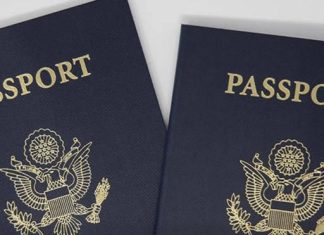In my early years, I carried a quiet, persistent envy toward the children who had both parents present in their lives. Their stability highlighted the void I experienced daily. My mother wasn’t lost to illness or accident she made a deliberate choice to leave when I was eleven. That choice left an emotional scar, a wound that shaped my perception of love and belonging.
The Moment of Abandonment
Her departure was clear and absolute. She left both my father and me for another life, never looking back. The silence that followed was deafening. The rejection was tangible: I had been deemed not enough to remain in her life. The absence was permanent, and it taught me early lessons about the fragility of trust and the weight of conscious choices.

Facing the Return
Years later, she appeared unexpectedly at my door, gravely ill and seeking to spend her final days with me. I recognized the plea for care and sentimentality as transactional, a request rooted more in her needs than in any repair of our broken bond. I said no. My self-preservation demanded it. The door that had closed on that pivotal day at eleven remained shut, a symbol of my refusal to allow manipulation to reopen old wounds.
Confronting Loss
The very next day, the police delivered the news: she had passed away. The finality hit me like a storm. Emotions collided—guilt, anger, sadness, and a vast emptiness. I grieved not only the person but also the relationship that never truly existed. The potential for reconciliation, lost forever, left me grappling with a complex blend of emotions, a mix of mourning and relief that the burden of her presence was no longer immediate.
The Final Message
Later, her legal representative delivered a small box containing her last message. Inside was a photograph of me as a child, smiling, wrapped in the fleeting embrace of a mother who had been present for only a moment. Beneath it lay a letter, her confession: she admitted her choices caused profound pain. She claimed she left not from lack of love, but because she was “broken” and incapable of facing motherhood’s demands. She revealed she had silently observed me from afar, never daring to reenter my life fully.
The Request for Forgiveness
The most difficult part of her message was her request for forgiveness. She sought it not to soothe her own guilt, but to free me from carrying the weight of her mistakes. It was an invitation to release the emotional burden and reclaim my own peace—a chance to transform lingering resentment into something constructive.

Choosing Freedom Over Bitterness
Opening the box, I allowed myself to cry—for the mother I never fully had, for the child who waited in vain, and for the adult shaped by her absence. Forgiveness was not immediate absolution, but a conscious act of release. I let go of the pain enough to breathe, to reclaim autonomy over my emotions, and to define my life beyond her choices.
Lessons Carried Forward
From this, I learned profound principles: the importance of loyalty, emotional courage, and steadfast presence. The abandonment that once threatened to define me became a teacher, guiding my choices and shaping my resilience. I continue to heal, learning to thrive without allowing bitterness to anchor my future. This deliberate act of self-definition has become my victory—proof that I can rise above even the deepest of childhood wounds.

















